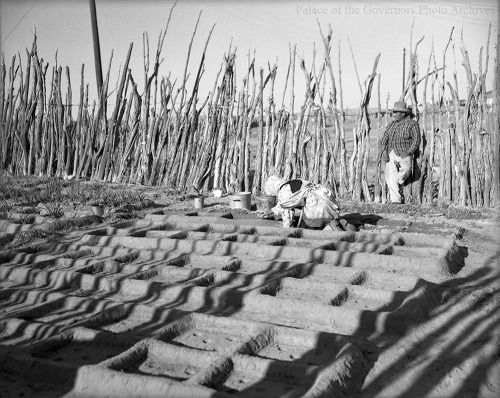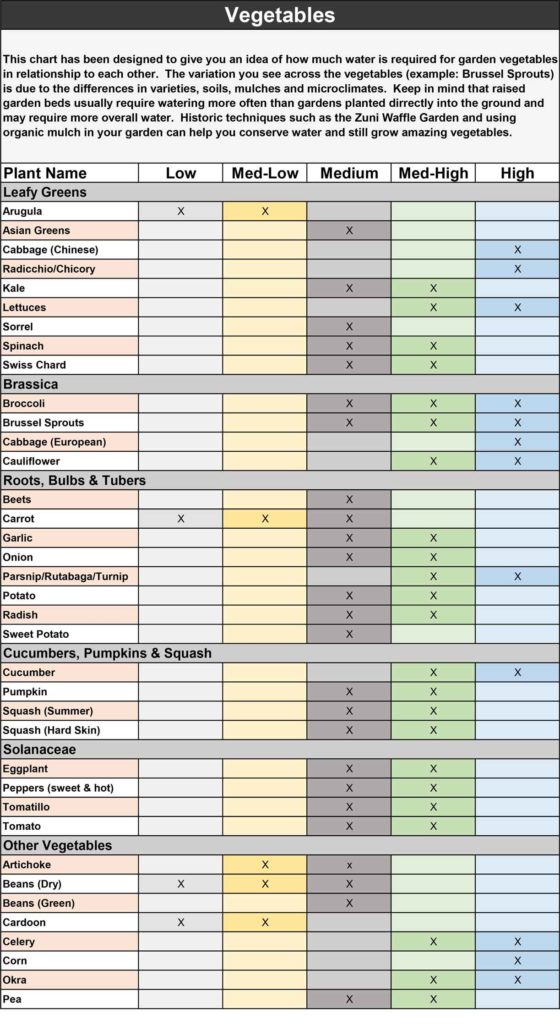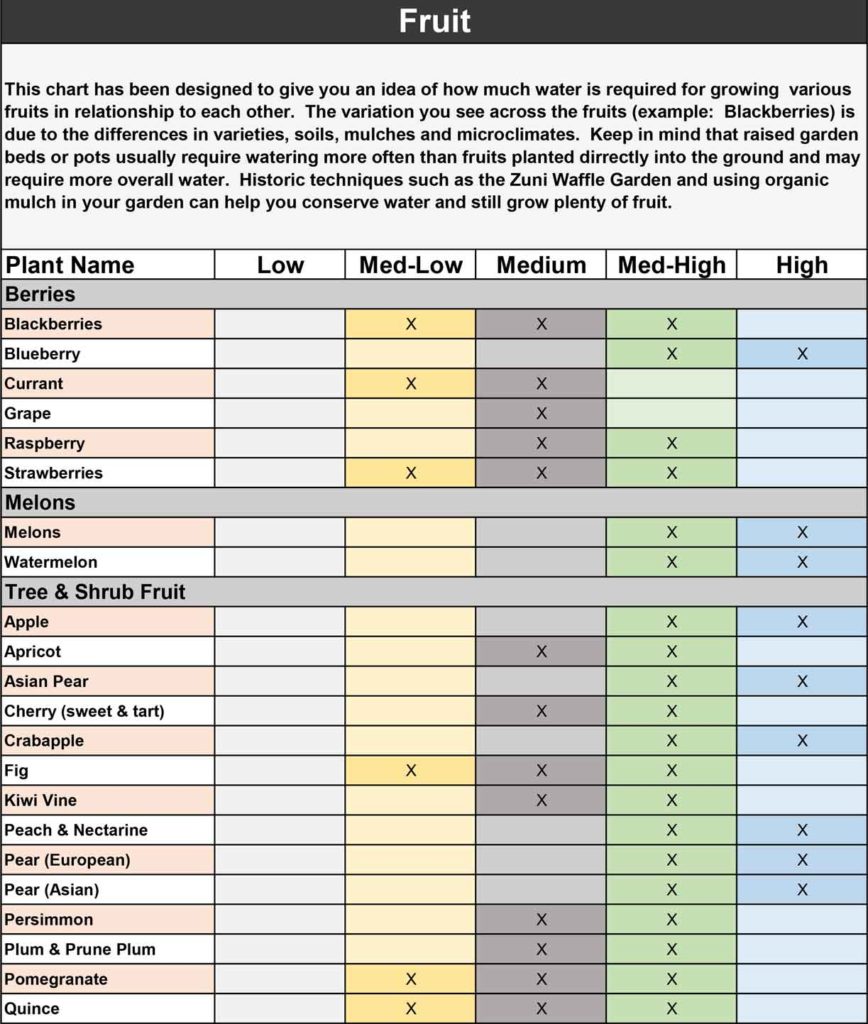There are a number of things to consider when you are growing fruit and vegetables
- The healthier your soil is the less water you will need over the growing season. Improve your soils by adding compost and other amendments every year. Getting a soil test can help you determine exactly what to add.
- Cover your garden with an organic mulch, whether it is straw or wood chips (or another organic product). A thick layer (3-4”) of mulch will reduce the frequency of watering, and the amount you need because it helps cool the soil and protects against rapid evaporation.
- Raised beds and pots can make gardening more convenient because you don’t have to stoop and it’s a way to utilize small spaces, or area where the ground may not be able to be used for gardening. The convenience often comes with a trade-off. Raised beds and pots tend to require water more frequently, often times using more water over a growing season than if you planted your garden in the soil.
- Historic, or traditional methods, such as waffle gardens and using ollas (unglazed terracotta pots which go in the soil at a plant’s rootzone) will often help you conserve water. More information on waffle gardens can be found here: Waffle Gardens – UNM Sustainability
- Choose appropriate fruits and vegetables for your garden. Blueberries may be a “superfood” and delicious, but they want to grow in acidic, consistently moist soils. Those conditions are essentially the opposite of Albuquerque. Huckleberries, related to blueberries, prefer a more alkaline soil, and will often flourish in drier conditions.
We have provided you with a quick guide to also give you a better idea of the relative amount of water needed to keep your fruits and veggies healthy and consistently producing for you.
Click on the image to download the guide.
Learn more about growing vegetables here:
Easy Edibles for First time growers
Vegetable and Herb Gardening in Small Spaces




